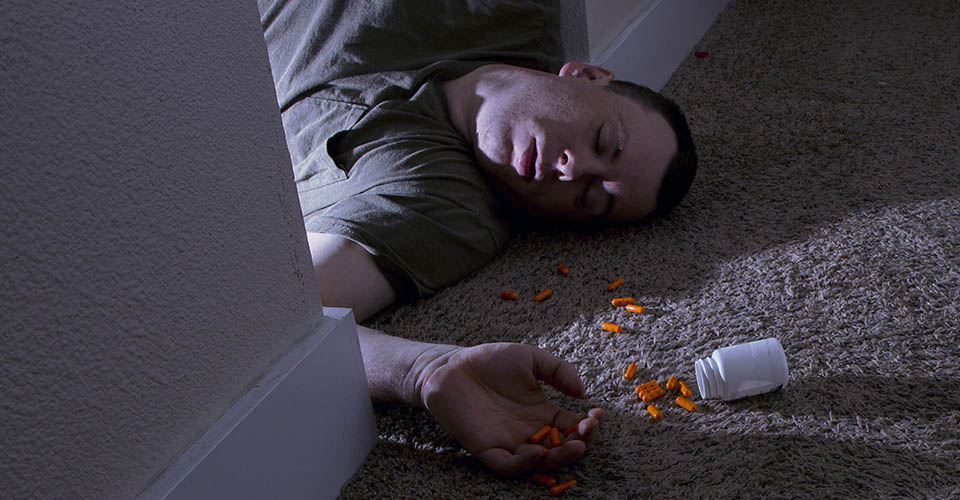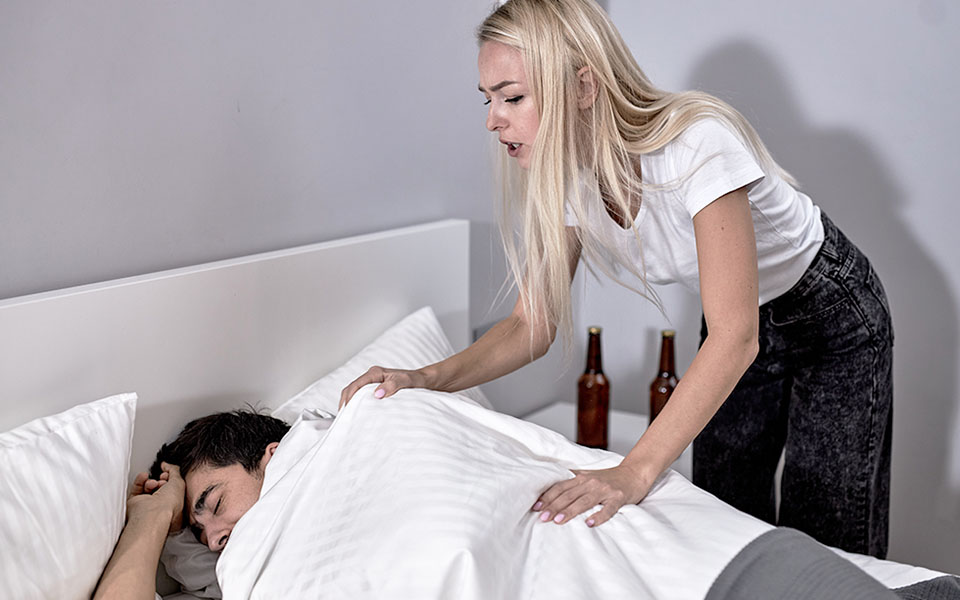We recently covered what co-occurring disorders are, looked at common causes, and discussed some evidence based treatments for people with both substance abuse and mental health issues. While it’s not uncommon for patients to have an isolated disorder, the prevalence of those struggling with both an addiction and a mental health disorder warrants a conversation. In fact, statistics indicate that more than one in four adults is coping with both. But with that in mind, why does this happen? More importantly, how can you identify it and get help? Let’s take an in-depth look at the relationship between mental health disorders and substance abuse and what it may mean for you.

The Link Between Mental Health and Substance Abuse
So, why is it so common for those with mental health disorders to struggle with substance abuse (or vice versa)? There are several reasons why co-occurring substance use and mental health disorders develop.
The first happens when mental health disorders contribute to the development of substance use disorders. While there is a wide range of risk factors that lead to potential substance use later in life, one of these most notable risks is mental health disorders. These mental health disorders often include depression, ADHD, bipolar disorder, PTSD, and beyond. Those who suffer from the symptoms of these mental health disorders may turn to various substances as a means to reduce the severity of these symptoms. This can then lead to addiction as one continues to self-medicate.
The second happens when the substances being abused alter brain chemistry or impact the ability to function as normal. One example of this is alcohol. Alcohol itself is a depressant; it greatly impacts your mood and makes it difficult to regulate your emotions. In the example above, someone with major depression may drink as a means to cope with the symptoms of their mental health disorder. On the other hand, the continued use of alcohol (especially to an extreme degree) may prompt depression to develop as a result. Generally speaking, co-occurring disorders generally manifest because one leads to the development of the other. That being said, there’s a third scenario to know about as well.
Another major cause of and link between substance use disorder and mental health disorders is the fact that both disorders share common risk factors. Genetics, trauma, environmental influences like stress, and similar risk factors can make one more predisposed to developing a mental health disorder, substance use disorder, or both. As demonstrated by the above, risk factors may lead to the development of one disorder first, which is then followed by another disorder in response.
Put simply, the link between mental health disorders and substance abuse is better understood when you know how one can cause the other (and how risk factors present in the two can make you more susceptible to both). But with all this in mind, how do you know if you’re struggling to cope with either? What should you be looking out for to better determine if you need help?
Signs and Symptoms of Substance Abuse
Generally speaking, it can be difficult to determine on your own whether or not you’re struggling with substance abuse. While some of the social symptoms might be prominent, physical signs and symptoms might be harder to identify. This is why it’s important to not only evaluate these signs and symptoms on your own but with the support of loved ones and experts like those at 12 South Recovery who can see behavior more objectively.

Some of the signs and symptoms of substance abuse include:
- A greater occurrence of health issues, such as colds or runny noses
- Physical symptoms like tremoring, difficulty maintaining balance and coordination, and slurring words
- Strange odors on belongings, the body, or on the breath
- Stealing money or belongings in order to afford alcohol or other substances
- Using substances to avoid the withdrawal symptoms that accompany said substance
- Not being able to stop using a substance
- Unintentional overdoses
- Experiencing a greater tolerance to drugs or other substances and having to use more in order to receive the same effects
- No desire to stop, even in the face of negative effects that affect one’s physical, emotional, or financial health
- A life that is focused entirely on substances (using, getting the substance, planning the day around it, etc.)
- Paranoia and anxiety when using certain substances
- Changes in mood that occur before, during, or after using a certain substance
You may notice that there are certain signs and symptoms missing from this list. This is due to the fact that many of the symptoms of substance abuse can be indicative of a mental health disorder as well. We’ll cover plenty of these in the section below.
If you’re struggling to see whether or not you have substance use disorder, it can also be helpful to better understand if you’re engaging in denial to avoid the reality of your situation. When looking at your situation objectively doesn’t work, seeing if you engage in other behaviors to avoid admitting to substance abuse might help.
Signs and Symptoms of Co-Occurring Disorders
The problem with co-occurring disorders is that both symptoms of substance use disorder and signs of mental health disorders are often one and the same. Using the above to differentiate between the two can be helpful. But what signs* should you look out for if you believe you might have substance use disorder and a mental illness?
- Sudden weight loss or weight gain
- Changes in appetite (eating more or eating less)
- Changes in sleeping patterns (sleeping more or sleeping less)
- Changes in grooming abilities (for example, those abusing substances and those who have depression might groom themselves less and struggle to maintain a healthy personal appearance)
- Problems maintaining healthy personal relationships
- Isolating from friends and family
- Suicidal ideation or planning (if you’re experiencing thoughts and feelings of suicide, seek out help immediately by calling 988 for free, confidential, 24-7 support)
- Changes in behavior (less forthcoming with information, anxious around others, etc.)
- Getting in trouble with law enforcement or other authority figures
- No longer paying attention to personal and professional responsibilities
- No longer engaging in things that one used to enjoy (or finding it difficult to enjoy anything)
- Engaging in risky behaviors (gambling, unprotected sex, etc.)
- Experiencing greater fatigue and loss of motivation
- Changes in mood, such as crying more, becoming more irritable, and experiencing outbursts of emotion not typical of the person
*Certain signs and symptoms may be indicative of any number of health issues. Always consult with a trusted medical professional for an official diagnosis.

Despite the larger number of symptoms that are shared by both substance use disorder and mental health disorders, co-occurring disorders can effectively be identified and treated. Both need to be treated in order to improve your chances of moving forward with treatment successfully. But who do you turn to when you need help to manage these coexisting disorders?

Begin Your Healing Journey With 12 South Recovery
12 South Recovery is dedicated to helping those struggling with addiction, mental health disorders, or both achieve a better quality of life by overcoming these issues. Through a broad range of therapies and residential and outpatient care programs, we work with you to better understand the roots of your disorders, provide you with the support you need to overcome your symptoms and causes, and acclimate back to life and society.
Are you ready to take the first step in your healing journey? Reach out now to begin the admissions process and discover how we can support you.


















